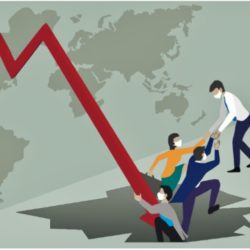Facing up to global disruption in the supply chain (2)

Lucy Harding and Pieter Ebeling, Partners in the Global Procurement and Supply Chain and Consumer, Retail and Digital Practices of Odgers Berndtson in the UK and the Netherlands, respectively, continue to discuss global disruption in the supply chain economy and what this means for leadership.
In the second part of this interview, we ask how global disruption is impacting leadership. What kind of skills and mindsets are in demand and how exactly do you find them in a highly competitive marketplace. You can reread the first part of the interview here.
In the first part of this interview, we got a clear idea of how global supply chains are being radically disrupted, but how are the subsequent demands of leadership shifting?
Harding: ”Supply chain is a very broad term, and it means different things to different businesses and industries. From a leadership perspective, what’s required is a real understanding of the end-to-end supply chain, from the raw materials and the products you are buying, to how and where you make the products.
Whilst you may not own that entire end-to-end supply chain in its broadest sense, part of the responsibilities of your role are that you absolutely need to understand it. You need to be able to understand the end-to-end environment in which your supply chain operates, and you also need to understand how that relates to- and impacts on the business strategy at board level. So it is that broader thinking within the function and the breadth of knowledge across the end-to-end supply chain that’s required.
Even if you don’t have the responsibility for all of it, you need to know what is happening upstream and what is happening downstream, so you can make sure what you are delivering in the middle is going to deliver to your organisation. And you need to know what it is that your supply chain is doing for your business and how it gives your business an advantage.
So it is breadth and function, and then it is overlaying that with a strong understanding of the broader business strategy.”
Ebeling: ”Leaders have grown from specialists to people who can design and guide strategic programs, as the supply chain has become a key differentiator for organisations. That means that a shift is needed within the organisational structure, from decentralized to centrally-controlled, but with the desired agility of today, in people, processes and technical solutions. The continuous improvement programs and those capabilities are reasonably well-developed today.
What is innovative? If we look further into the future, is this the route that we have to take? These are questions I don’t hear asked very often.”
What can executive search offer them at this point?
 Harding: ”I think that the reality is that the skills that many people are looking for are in really short supply. Which means that you need people to assess those skills and know where to find them from a position of knowledge and of insight. We also need to bring to the table a broader advisory relationship with our clients, because many people are trying to find the same talent.
Harding: ”I think that the reality is that the skills that many people are looking for are in really short supply. Which means that you need people to assess those skills and know where to find them from a position of knowledge and of insight. We also need to bring to the table a broader advisory relationship with our clients, because many people are trying to find the same talent.
Many may not actually find it or it may not even exist right now. So we need to bring that advisory conversation about where else you’d go or advise on the aligned industries, maybe looking outside your industry in a place that you haven’t thought of before, looking in a slightly different part of an organisation where the skills could transfer.
We help clients understand where to find this talent, whether it is in short supply or it does not actually exist yet. We then work really closely with them to de-risk that appointment as much as possible, which will be through market knowledge, referencing and psychometric assessments, to take all of the layers of risk away as much as possible. With regards to a lot that is being asked of supply chain leaders today, certain elements of that are here for the first time, due to the technological developments in this field.”
Ebeling: ”Odgers Berndtson excels at helping to enable transformations within organisations. We can do that through an outside-in view, across industries. Sometimes also across functional areas. But of course, this starts with asking what the ambition is within the organisation, and what the appetite for change is.”
Can the Odgers Berndtson LeaderFit™ model add an extra layer to this?
Harding: ”Yes, our LeaderFit™ Model and Profile is designed to find the leaders able to thrive in a world of disruption, complexity and uncertainty. That’s particularly true when you are looking for new skills and people that haven’t got years of experience having done this particular part of supply chain transformation before, because what we are doing is new and different in the role.
So by using LeaderFit™, you can assess people’s learning ability, their ability to cope with ambiguity, how they lead people and their thinking styles. This can help you de-risk some of these appointments when you cannot fall back on previous experience because that experience is so new.”










